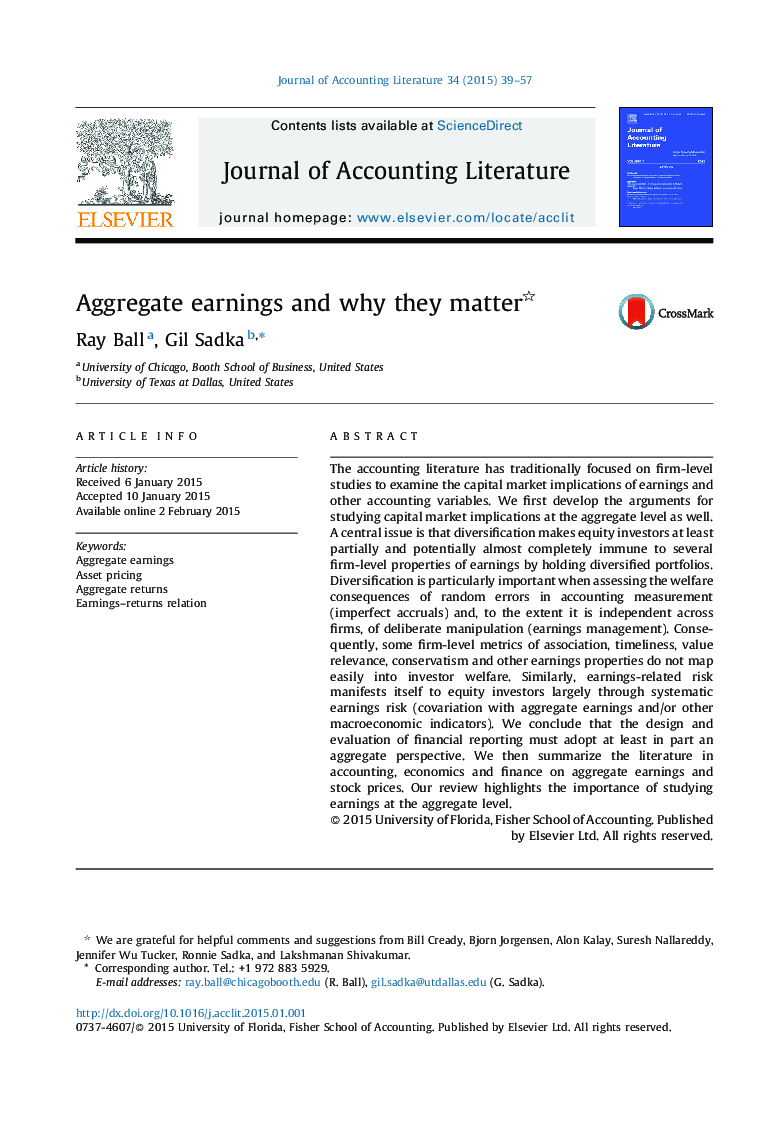| Article ID | Journal | Published Year | Pages | File Type |
|---|---|---|---|---|
| 1005705 | Journal of Accounting Literature | 2015 | 19 Pages |
The accounting literature has traditionally focused on firm-level studies to examine the capital market implications of earnings and other accounting variables. We first develop the arguments for studying capital market implications at the aggregate level as well. A central issue is that diversification makes equity investors at least partially and potentially almost completely immune to several firm-level properties of earnings by holding diversified portfolios. Diversification is particularly important when assessing the welfare consequences of random errors in accounting measurement (imperfect accruals) and, to the extent it is independent across firms, of deliberate manipulation (earnings management). Consequently, some firm-level metrics of association, timeliness, value relevance, conservatism and other earnings properties do not map easily into investor welfare. Similarly, earnings-related risk manifests itself to equity investors largely through systematic earnings risk (covariation with aggregate earnings and/or other macroeconomic indicators). We conclude that the design and evaluation of financial reporting must adopt at least in part an aggregate perspective. We then summarize the literature in accounting, economics and finance on aggregate earnings and stock prices. Our review highlights the importance of studying earnings at the aggregate level.
